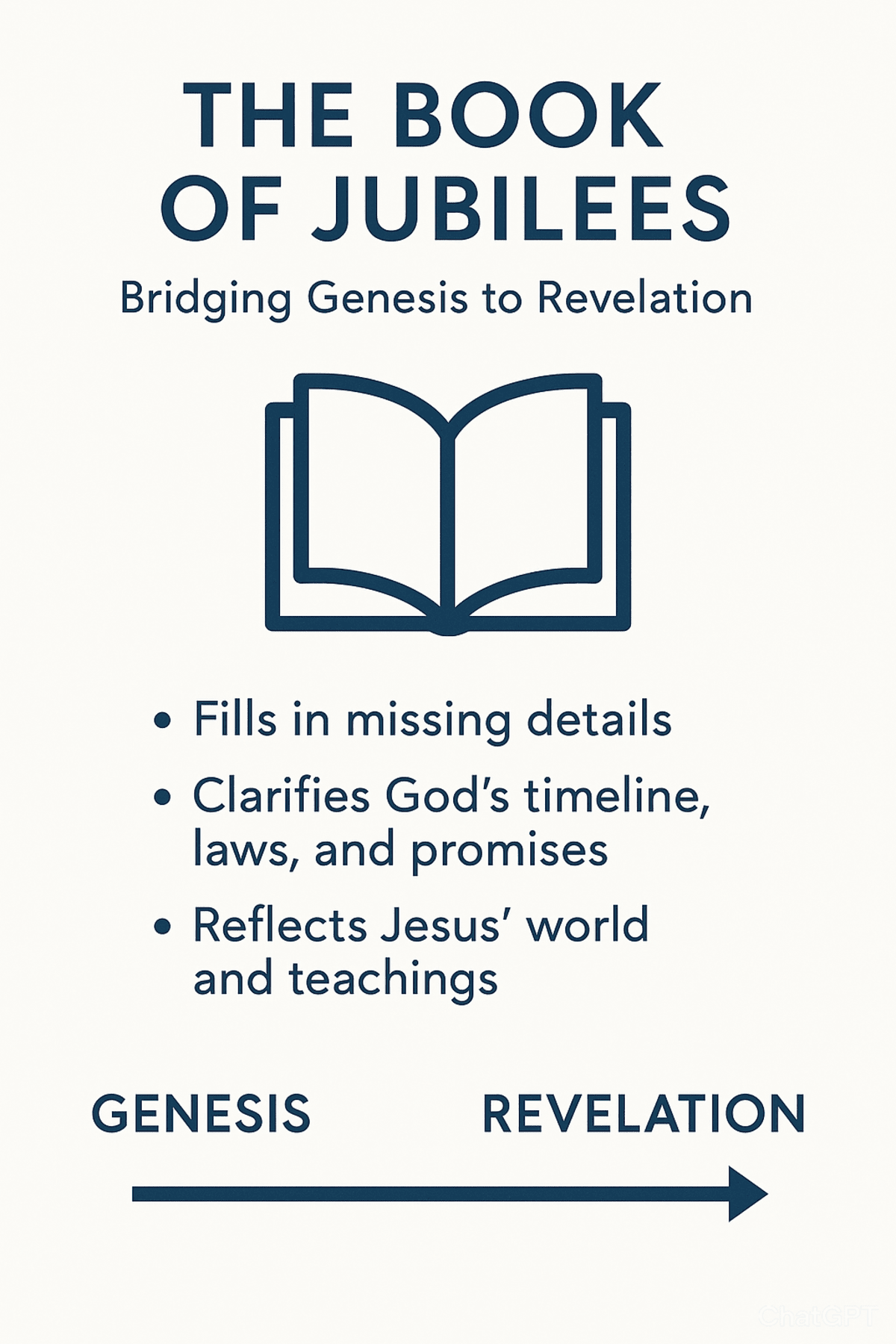Why the Book of Jubilees Deserves Our Attention
If you’ve ever read the Bible and felt like some pieces were missing, details hinted at but never explained, you’re not alone. The truth is, there are ancient writings that were highly valued in biblical times but rarely read today. One of the most fascinating of these is the Book of Jubilees.
This ancient Jewish work, written during the Second Temple period (roughly 200 BCE), retells and expands the stories of Genesis and Exodus. But it does more than just reword them, it fills in the gaps, connects themes, and gives us insights into how the earliest Jewish believers understood God’s plan.
Why Should We Care About Jubilees?
It bridges Genesis to Revelation.
While Genesis gives the foundation, Jubilees often fills in the “missing” details, making the flow of God’s plan easier to follow.
It parallels 1 Enoch, just like the Book of Enoch reveals hidden details about the spiritual realm, Jubilees offers clarity about God’s timeline, laws, and covenant promises.
It reflects Jesus’ own context, while Jesus never directly quotes Jubilees, the themes and interpretations in His teachings show that He was speaking into a world where works like Jubilees shaped spiritual thought.
What’s Inside?
Jubilees is sometimes called “The Little Genesis” because it’s a rewritten version of the early Bible books, but it divides history into precise blocks of 49 years (“jubilees”), and it presents God’s story with an incredible sense of order and purpose.
It tells us:
More about the early patriarchs (Noah, Abraham, Jacob) than Genesis alone gives.
Insights into the angels’ role in God’s plan.
A strong emphasis on covenant, holiness, and obedience.
Not Scripture. But Invaluable
I am not saying Jubilees should be treated as canonical Scripture. But just as 1 Enoch has helped modern readers understand the background to Genesis or Jude’s letter, Jubilees can help believers see the unity of God’s story from beginning to end.
Bringing Jubilees Back to Life
For centuries, Jubilees has been tucked away in dusty manuscripts, known mostly to scholars. But that’s changing. More Christians are beginning to see its value, not as a replacement for the Bible, but as a powerful companion for understanding it.
In the coming weeks, we’ll explore its chapters, themes, and connections to the teachings of Christ. We’ll also show where it intersects with prophecy, God’s covenant promises, and even modern Christian living.
If you thought you knew the whole story… get ready to be surprised.
Please 'click' on the following link below:
